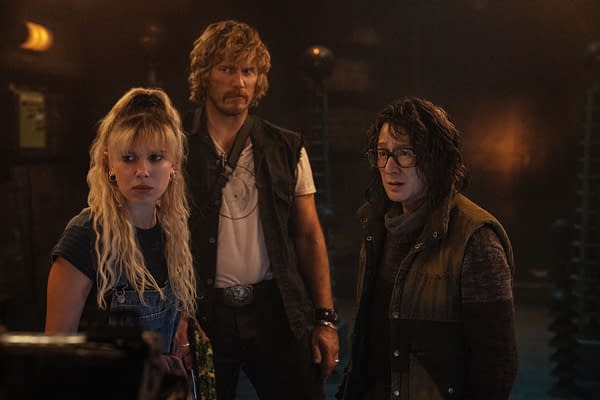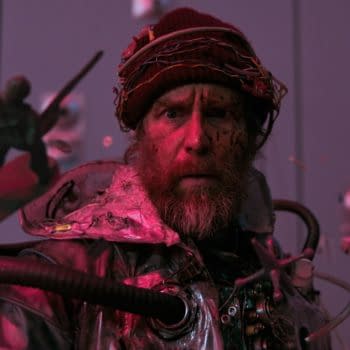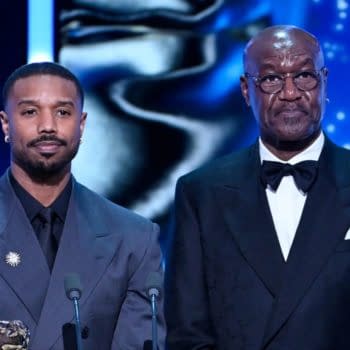Posted in: Movies, Netflix | Tagged: film, joe russo, netflix, the electric state
The Electric State Director on Making Thematic Changes to the Film
Joe Russo, co-director of Netflix's The Electric State, reveals why the film needed to undergo a few key thematic changes to the material.
Article Summary
- Joe Russo discusses adapting The Electric State for a broader, family-friendly audience.
- The film shifts tone from the graphic novel's darker atmosphere for younger viewers.
- Debate arises on balancing faithful adaptation with reaching a wide audience.
- The Electric State sparks discussions on technology's impact across generations.
Netflix's recent release, The Electric State, based on Simon Stålenhag's graphic novel, has generated a wave of polarizing reactions, largely due to its significant shift in tone for a broader, family-friendly audience. And, this departure from the source material's slightly darker, more unsettling atmosphere has been a key point of contention among viewers.
The film's co-director, Joe Russo, in a pre-release interview with Screen Rant, explained the rationale behind this change, stating, "It's an interesting shift away to a more family appeal tone because we felt like the message about technology that was in the graphic novel was most important to be heard by younger audiences, and we wanted to make sure that they would watch the film. And so, it is a broad-appeal movie. It is a family film." He adds, "A 6-year-old could watch it, an 80-year-old can watch it, and everybody in between [can watch it]. We felt like the message was the most important for the six- to 18-year-old range–that generation that's immersed in technology. Simon Stålenhag, who created the book, has two daughters, and he felt it was also really important."

Why The Electric State Struggled to Connect with its Audience
In many ways, the core of the debate centers on whether the film successfully balances its desire to reach a broader audience with its responsibility to faithfully adapt the source material. Some argue that the film's attempt to sanitize the narrative has resulted in a less impactful and less nuanced exploration of its themes. Others contend that the film's shift in tone allows it to spark crucial conversations about technology's influence among a wider audience, including families and younger viewers who might otherwise have been excluded.
Ultimately, The Electric State has become a peculiar case study in the challenges of adapting mature source material for a broader audience. While the film's creators aimed to deliver a relevant message to a new generation, the polarizing reactions remind us of the delicate balance between accessibility and artistic integrity. But if you have any residual feelings about this adaptation, share your thoughts in the comments below.
The Electric State is available to stream exclusively on Netflix.















